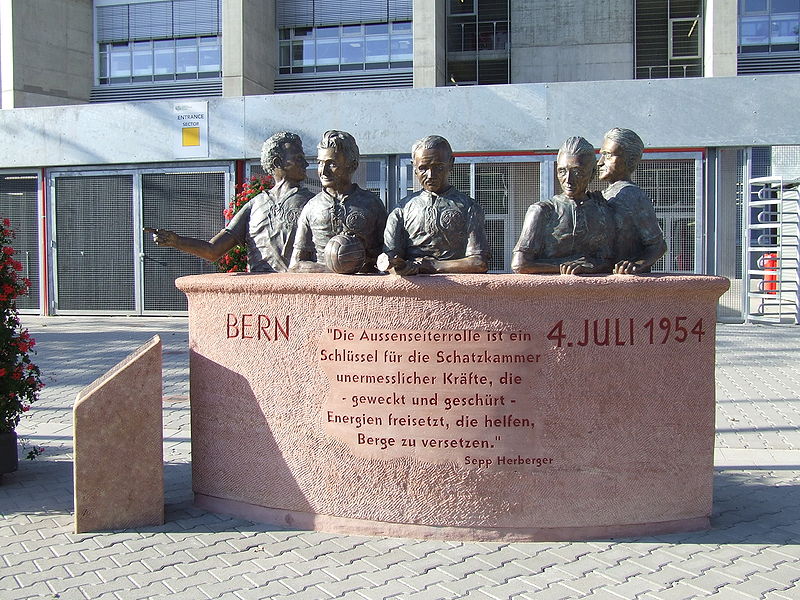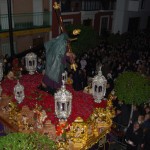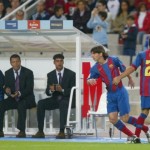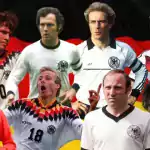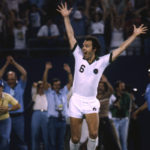Fritz Walter, el mejor jugador alemán de la historia
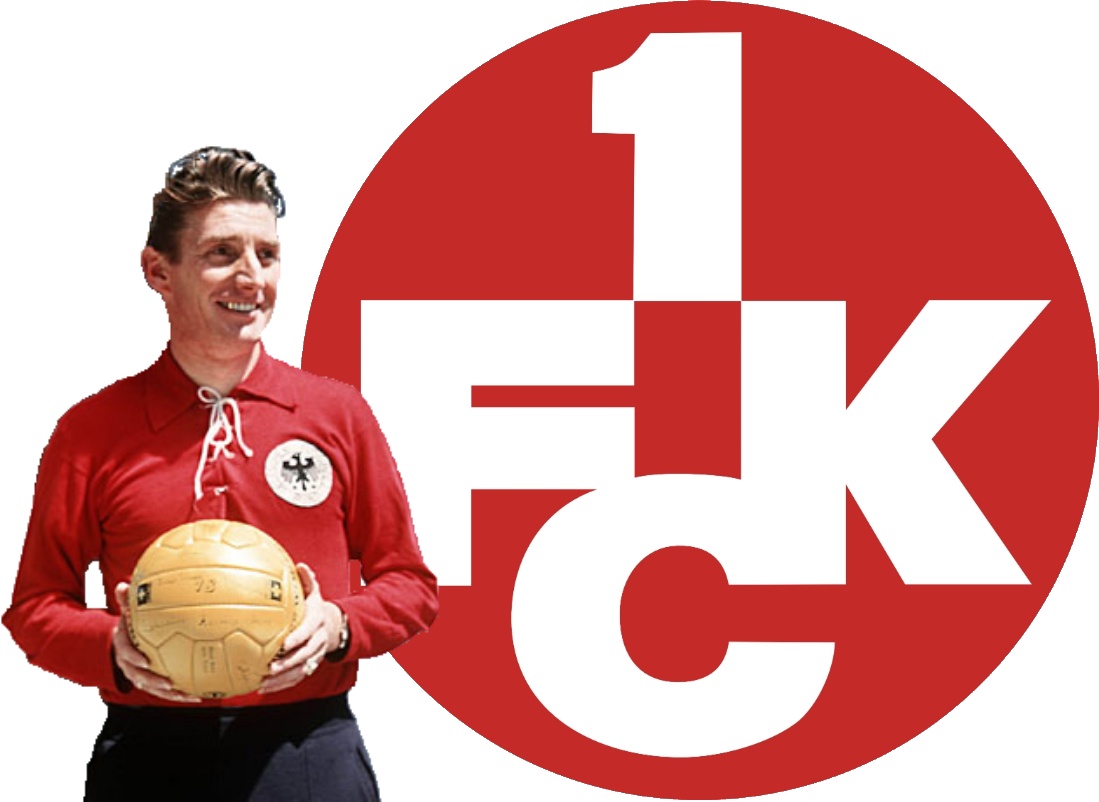
¿Qué tiempo hace? Hace un tiempo Fritz Walter. Ello es lo mismo que decir una meteorología fría, marcada por la lluvia, en ocasiones nieve, por el campo de juego embarrado. En definitiva, por todos las condiciones climatológicas adversas posibles. La pregunta es un ritual en los medios de comunicación germanos antes de comenzar un encuentro. La respuesta, un homenaje al mejor jugador alemán de la historia, un hombre que adoraba jugar bajo esas condiciones, donde salía dar no el 100% sino el 200%, todo lo contrario que en días soleados, donde la afección de malaria sufrida en la II Guerra Mundial le provocaba no pocos quebraderos de cabeza.
Debo reconocer que no es fácil hablar del futbolista más especial que he conocido nunca a través de una biografía. Y es que se mire por donde se mire siempre hubo algo que marcaba en toda la carrera de Walter. Algo de misticismo en una vida de película. Nacido un 31 de octubre de 1920 en Kaiserlautern, ese fue el equipo y la ciudad que consagró a esta gran estrella. El lugar donde nació, creció futbolísticamente y donde murió un 17 de junio de 2002, sin haber llegado todavía a los 82 años.
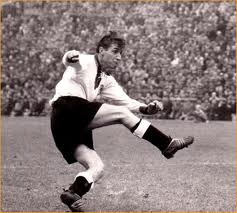
Fue en el Kaiserlautern donde dio sus primeros pasos con el balón en los pies y donde llegó al primer equipo en 1937, para completar una trayectoria de 22 años en los que jugó 411 partidos anotando 380 tantos. Unos números imperiales que pudieron haber sido mayores de no haber tenido la desgracia de haber coincidido en el tiempo con le gran conflicto bélico que supuso la II Guerra Mundial. Y es que la Gran Guerra, las cosas no fueron fáciles para Walter.
Prisionero de guerra de los soviéticos en el campamento Máramarossziget, allí entabló amistad con húngaros y checoslovacos con los que pasaba el poco tiempo libre jugando al fútbol. Una gran idea, pues cuando fue requerido por los soviéticos para ir a un Gulag de la URSS donde la esperanza de vida era de cinco años, un guardia húngaro de los que jugó engañó a éstos y les dijo que no era alemán, sino austriaco, evitando su triste traslado a esos campos de la «muerte».
Claro que sería después de la II Guerra Mundial, cuando veríamos la mejor versión de Fritz Walter. Sin Bundesliga que jugar (todavía no existía) fueron muchos los campeonatos regionales que hizo ganar a su equipo (las famosas Oberligas), en parte gracias a su enorme capacidad para ver puerta y a su gran clase con la pelota en los pies que le hacía diblar como pocos y hacer pases milimétricos a sus compañeros, siempre sin descuidar la marca de sus adversarios, algo de enorme valía máximo cuando se trataba de un mediapunta ofensivo.
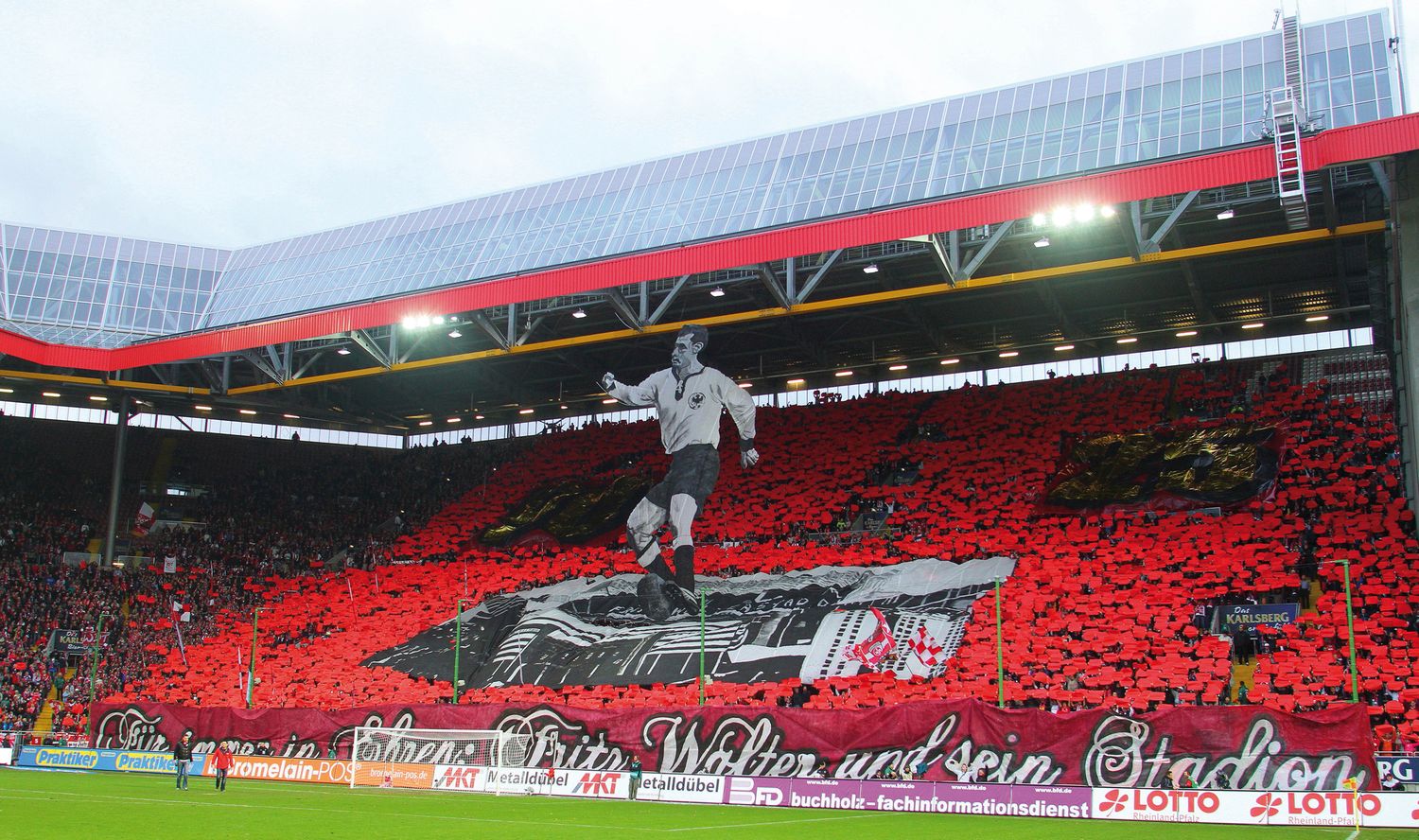
Aunque si hubo algo que marcó su vida deportiva, esa cosa no fue otra que la selección, con la que debutó en 1940 con un hat trick ante Rumanía y la que abandonó en 1958 en el Mundial de Suecia. Porque fue con Alemania y en la final del Mundial de Suiza 54 donde conseguiría la fama eterna. Capitán del equipo, se sobrepuso a todos los obstáculos habidos y por haber. La edad (tenía 33 años), un equipo sin tradición y un rival temible, la gran Hungría del 54, el equipo que les había metido ocho tantos en la fase previa, y curiosamente el país del guardia que le había salvado la vida años atrás.
Y es que con 2-0 en contra sólo ocho minutos, fue capaz de guiar una remontada que pasará a la historia del fútbol, como el Milagro de Berna, la remontada imposible ante un rival que no sólo ganaba, sino que goleaba a cualquier rival pero que tuvo la mala suerte de jugar con Walter en lluvia, lo que equivalía inexorablemente a la derrota. Pese a no anotar un gol en esa final, fue el mejor del partido y el verdadero artífice de su remontada.

Retirado en 1959 tras rechazar ofertas mejores de otros clubes, su legado a día de hoy es impresionante. Tiene en su honor un estadio, el Fritz Walter Stadion del Kaiserlautern, es capitán honorífico de la selección junto a Uwe Seeler, Franz Beckenbauer, Lothar Matthäus y Bettina Wiegmann y en su honor se levantan no pocas figuras recordando aquel 4 de julio de 1954.
Porque al fin y al cabo fue ese partido, el que lo relanzó a la fama, la fama de ser, el mejor jugador alemán de la historia.
